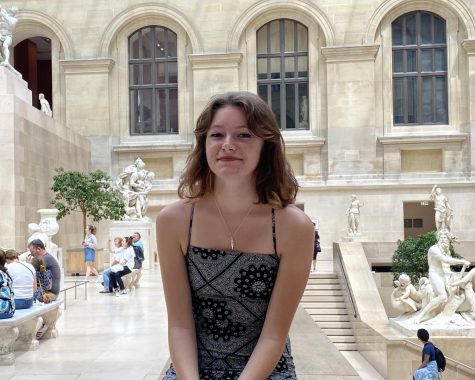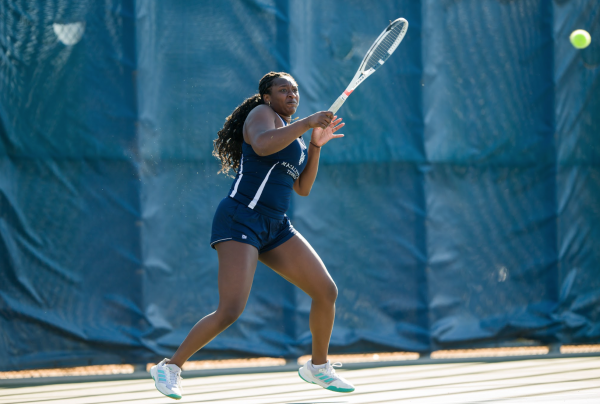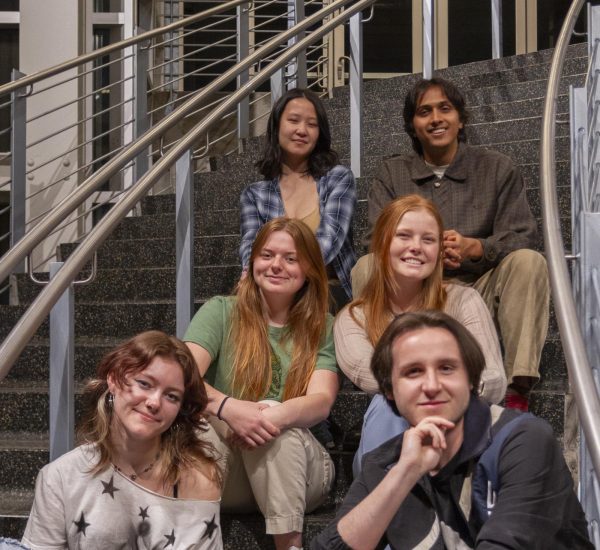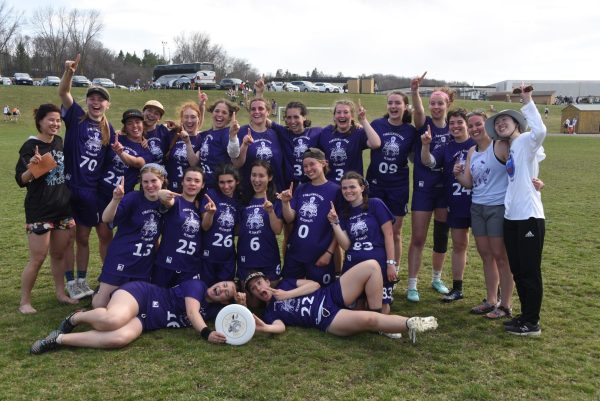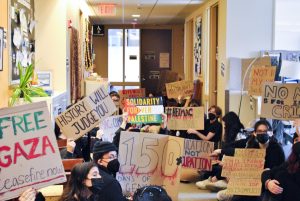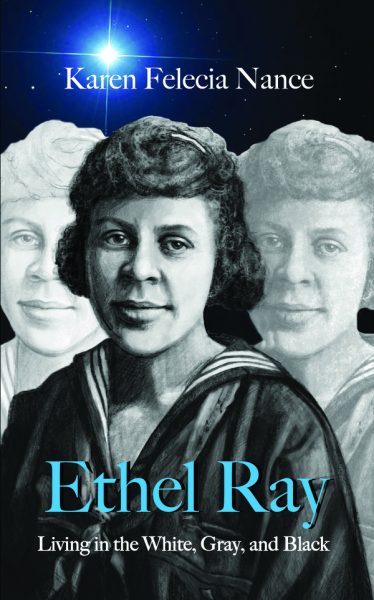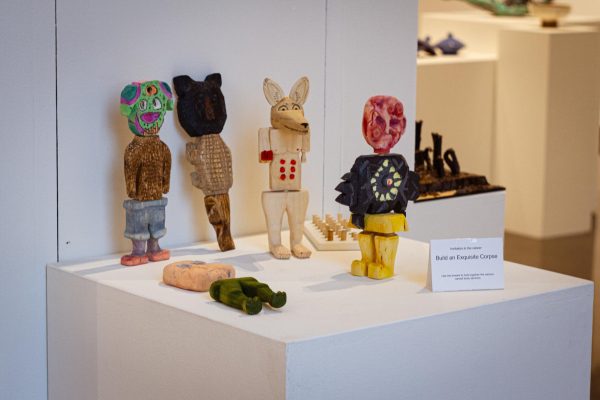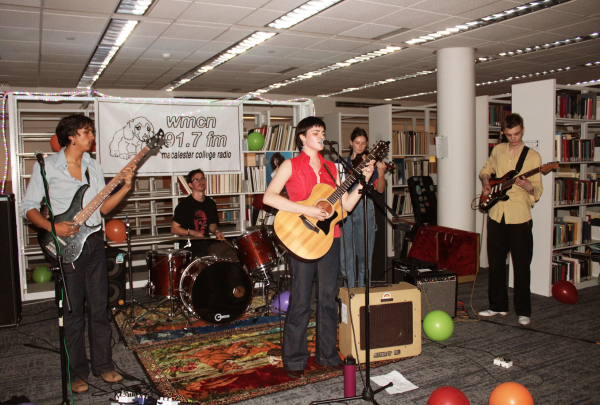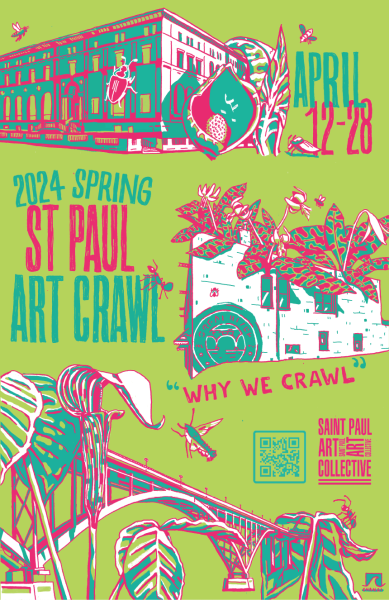Arts and Humanities students: You have more options than you think
April 6, 2023
‘What are you gonna do with that major? You’ll never make any money majoring in that.’ These are some of the age-old comments and questions that people interested in the arts and humanities can expect to hear. As a media and cultural studies major myself, I’ve become accustomed to the confused expressions after I have to explain what my major actually means. I’m sure all students at Macalester feel some sort of nervousness around their plans post-graduation, the feeling that you need to have your whole life figured out by 22 is hard to overcome. However, some students might have a less direct path than others.
“Arts and humanities students tend to have a less obvious route towards the types of roles and jobs that they can get outside of college,” Marcos Cruz, Assistant Director of the Career Exploration Office, said.
Cruz specializes in working with arts and humanities majors, and through his work, he has found it is especially easy for students majoring in creative fields to feel lost when looking at life beyond Macalester. He explained that it is his job as a career advisor to help students realize that there are always job opportunities for them after graduation, it’s just a matter of determining what skills you’ve learned in your major, rather than the content.
“In [Career Exploration], what we’re trying to highlight is that you’ve [already] learned some of these really crucial, important skills that employers are looking for, even if it’s not directly related to what you’ve learned every day,” Cruz said. “You’re using critical thinking everyday, you’re trying to problem solve, you’re being empathetic with the people that you engage with. Employers care more about what you know and the skill sets that you’re bringing, more so than [in what class] you’ve learned it.”
Part of Cruz’s role as a career exploration advisor is to help students see that there are so many things that they’ve already done that look really appealing to employers.
“An employer might be asking for someone who can communicate their ideas well, [you’ve] done that in a paper on American 19th century writers,” Cruz said. “Or [say] an employer is asking for someone who can communicate across differences, and [you’ve] read writers from different parts of the world, and saw some of the differences in the way that stories are being told.”
Cruz emphasized that Macalester students have already gained many marketable and useful skills through doing things they enjoy. Combining these skills with your interests can often lead to discovering opportunities that might not have presented themselves before. An example that he spoke about was an English major that cares about reproductive health. Cruz suggested looking at an organization focused on reproductive health or gender justice and putting the skills the student learned as an English major to use in this field. That might include coming up with blog posts for the organization’s website or writing weekly newsletters.
Current Macalester student and creative writing major Ashton Rose ’25 spoke about their career journey thus far and turned out to be a perfect example of Cruz’s point.
“I worked last summer as a teaching fellow at an intensive program where you teach classes that you’ve designed to middle school students,” Rose said. “I taught an architecture class that was [about] geometry and algebra, but they also designed models of houses and built them out of chipboard and hot glue. I was [also] co-teaching an elective class on world building, so we were talking about fantasy and Tolkein and Avatar; how to create your own world.”
Rose has already been able to combine their interests with skills they’ve learned through their major, and going forward they intend to do the same. Rose shared some of their possible plans for the future, which ranged from an MFA program, to teaching, to video game writing and marketing, but all of which was underlined with being open to different and new opportunities.
Alumni Elissa Cedarleaf-Dahl ’01 echoed this sentiment when asked about her experience in the workforce after graduation. As a Spanish and studio art double major, it was almost second nature for Cederleaf-Dahl to combine her two passions. After running a homeless shelter kitchen out of college, she began mural work through the connections she made there.
“From there, I got a job translating in the Minneapolis Public Schools as a Spanish translator,” Cedarleaf-Dahl said. “After that, I started to find these intersections with Spanish and art, in the classroom and in my art projects. I just saw so many opportunities. I ended up getting my teaching license, I’ve taught K-12 and higher ed, but I pursued art and Spanish that whole time. A second skill set for studio artists is really important.”
However, this second skill set does not have to manifest as a second major, it could be an affinity to working with kids or to cooking, or something you didn’t even know you’d enjoy before you tried it. Alumni Erin Holt ’13, also a studio art major, proved this point as she spoke about what freelancing actually is, her advice on networking and the non-linear nature of creative careers. Holt’s post-grad work began with an internship she already had while still enrolled at Macalester, and through the connections she made there she decided to pursue freelancing which included working with a few smaller art centers. After a year, one of the art centers asked her to manage their summer camps.
“I thought, well, it’s not going to bring me a great deal of joy to be an administrator, but let’s give it a try, and I ended up liking it more than I thought I would,” Holt said. “So for three years, I was the manager of community partnerships, which meant I was handling all of our outreach education and programs, hiring teachers, developing curriculum, [but] I was also managing the budget and getting contracts written.”
However, COVID-19 played a big part in destabilizing many small art businesses, so post-COVID-19, Holt decided to try freelancing again.
“The first time I tried freelancing, it wasn’t long term sustainable, but now, after these many years of building relationships, I’m feeling good about it,” Holt said. “I’m able to actually hire people, I have contractors, I’ve formally started a teaching and arts business and it’s been going pretty good.”
Freelancing is obviously different for everyone depending on their field and goals, so I asked Holt what freelancing means to her.
“Generally speaking, freelancing means you’re making your own way in sort of bite-sized chunks,” Holt said. “You’re working for yourself, or you’re taking small gigs and short contracts. [It’s] about being open to new opportunities [and] developing relationships. You have to know who you are and what you want to present and then develop that brand.”
As we spoke, it became clear that networking and freelancing go hand in hand, especially while working in an artistic or humanities centered field.
“[The arts] is a very relational field, it’s relationship building,” Holt said. “Networking is a really scary word, but in the arts it just means having chats like this. It can be little conversations, informational interviews, going to coffee shops where there’s an art opening. Networking doesn’t have to be big events with hundreds of people. It just means maintaining friendships and relationships in your chosen field.”
Freelancing, networking, getting settled in a career; these things all come with their particular challenges and difficulties, and it’s incredibly normal to feel nervous about what comes next.
“There is a ton of anxiety around [graduating as an arts or humanities major], because it’s not a clear cut path,” Holt said. “It’s not like being a doctor or a lawyer, where there is a fairly clear cut set of steps to go through. A lot of jobs in [our fields] may not show up on your standard job board.”
But in general, us Macalester students, arts and humanities majors or not, are much better prepared than we think we are.
“I get the sense as an advisor that Macalester students are very hard on themselves,” Cruz said. “You are already doing stuff that is going to look great to employers by engaging with the college.”
“I tell people, you have to love this work and if you [do], then you’ll continue to get energy from doing the work,” Holt said.
As we concluded, Holt gave some very poignant advice that only feels right to end on.
“Don’t beat yourself up if your career path does not look exactly like what you had imagined,” Holt said. “This is a very winding and nebulous career field, so if it doesn’t look quite the way you wanted it to, don’t despair.”


